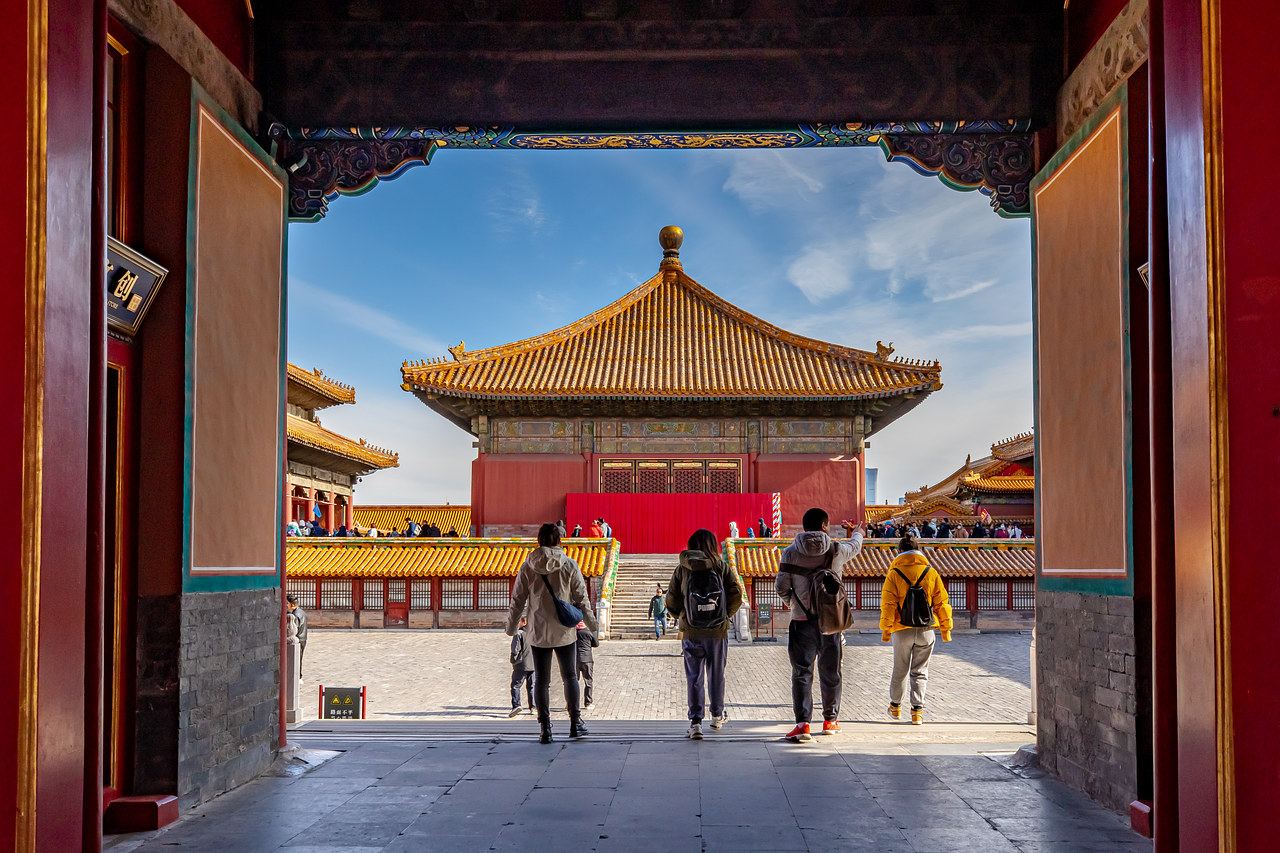Diplomatic Overtures and Strategic Partnerships
In a carefully orchestrated diplomatic move, Chinese President Xi Jinping’s recent three-day state visit to Hungary marked the culmination of his European tour. This strategic stopover in Budapest underscores China’s burgeoning economic and political aspirations within the continent, with Hungary emerging as a pivotal bridgehead for Beijing’s expansionist agenda.
Amidst the fanfare, the two nations are poised to finalize a series of far-reaching agreements that could further cement their deepening ties. Approximately 16 accords are slated for signing, encompassing diverse sectors such as infrastructure development, transportation, and energy initiatives – all intrinsically linked to China’s flagship Belt and Road Initiative (BRI).
The Belt and Road Initiative: A Catalyst for Cooperation
The BRI, a transcontinental development strategy spearheaded by China, has become the centerpiece of Beijing’s global economic outreach. By fostering interconnectivity through infrastructure projects, trade facilitation, and policy coordination, the initiative aims to revive ancient Silk Road trading routes and establish a vast network of economic corridors spanning Asia, Europe, and Africa.
In this context, Hungary has emerged as a strategic partner, with its cooperation pivotal to realizing China’s ambitions within the European theater. One emblematic undertaking is the ongoing renovation of the Budapest-Belgrade railway line, a crucial artery that could potentially expedite the transportation of Chinese goods from the Greek port of Piraeus to Western European markets.
Controversies and Criticisms: Scrutinizing the Investments
However, this grand infrastructure project has faced its fair share of scrutiny and criticism. Concerns have been raised regarding the compatibility of the imported technology with European Union (EU) standards, casting doubt on the line’s long-term viability and interoperability within the continent’s transportation network.
Critics have also questioned the economic rationale behind the investment, citing the railway’s detour from major Hungarian cities and the potential for an extended repayment period – potentially spanning an entire century – for the Chinese loans that financed the endeavor.
Corruption Allegations and Geopolitical Undercurrents
Beyond the economic considerations, the bilateral relationship between China and Hungary has been tainted by allegations of corruption and broader geopolitical undercurrents. According to international relations expert Csaba Káncz, Hungary’s status as the most corrupt member state within the EU has paved the way for a “strategic corruption” framework agreement, akin to the arrangement with Russia involving overpriced gas imports.
Káncz further asserts that the Budapest-Belgrade railway project represents a conduit for the Hungarian regime to siphon billions of euros annually, underscoring the potential for personal enrichment amidst the influx of Chinese investments.
Moreover, Xi’s visit to Europe is viewed not merely as an economic endeavor but also as a strategic security policy maneuver. Káncz contends that Hungary has officially aligned itself with the “peace camp” – a revisionist coalition comprising Russia, China, and Iran – harkening back to the Cold War era’s ideological divides.
The EU’s Countermeasures: Safeguarding Market Competition
Cognizant of the potential risks posed by China’s economic aspirations, the European Union (EU) has taken proactive steps to address concerns over market distortions. The European Commission has initiated investigations into Chinese state subsidies for manufacturing electric vehicles and solar panels, citing unfair competitive advantages that could undermine the integrity of the European market.
These measures underscore the EU’s determination to strike a delicate balance between fostering economic cooperation with China and safeguarding the principles of fair competition and market transparency.
Geopolitical Ramifications and the Future of Sino-European Relations
As China’s influence in Europe continues to grow, the implications extend far beyond the realm of economics. The strategic partnership with Hungary not only serves as a gateway for Chinese investments and trade but also carries geopolitical ramifications that could potentially reshape the continent’s power dynamics.
The EU’s response, characterized by a blend of engagement and cautious scrutiny, reflects the delicate tightrope it must navigate. On one hand, the bloc recognizes the immense economic opportunities presented by China’s ambitious initiatives; on the other, it remains wary of potential threats to its values, norms, and long-standing alliances.
In this intricate chess game of global politics and economic prowess, the relationship between China and Hungary stands as a microcosm of the broader challenges and opportunities that define Sino-European relations in the 21st century.
Hungary’s Strategic Calculations and Domestic Implications
For Hungary, the decision to embrace China as a strategic partner is not without its domestic implications. The influx of Chinese investments and the accompanying infrastructure projects have the potential to bolster the nation’s economic growth and development prospects.
However, concerns over transparency, accountability, and adherence to EU norms and regulations have cast a shadow over these endeavors. Critics argue that the Hungarian government’s cozy relationship with Beijing could compromise the nation’s democratic principles and erode its standing within the European Union.
The Environmental Implications: Balancing Growth and Sustainability
As large-scale infrastructure projects take shape, their environmental impact cannot be overlooked. The Budapest-Belgrade railway line, for instance, has raised questions about its ecological footprint and potential consequences for local communities and ecosystems.
Striking a balance between economic development and environmental sustainability will be crucial for both China and Hungary, as they navigate the intricate web of regulations, public opinion, and global climate commitments.
Cultural Exchanges and People-to-People Ties
Amidst the flurry of economic and political maneuverings, the importance of fostering cultural understanding and people-to-people ties should not be underestimated. Initiatives that promote cross-cultural exchanges, educational collaborations, and artistic endeavors can help bridge the gaps between the two nations and foster mutual appreciation and respect.
By nurturing these connections at the grassroots level, China and Hungary can lay the foundation for a more profound and enduring partnership that transcends mere economic interests.
The Role of Multilateral Organizations and Global Governance
As the Sino-Hungarian relationship evolves, the role of multilateral organizations and global governance frameworks becomes increasingly relevant. Institutions such as the United Nations, the World Trade Organization, and the International Monetary Fund can provide a platform for dialogue, conflict resolution, and the establishment of shared norms and principles.
By engaging with these global bodies, both China and Hungary can demonstrate their commitment to upholding international standards, fostering transparency, and contributing to the collective pursuit of sustainable development and global prosperity.
Lessons from History: Learning from Past Experiences
In navigating the complexities of this evolving partnership, it is essential to draw lessons from history. Past instances of economic cooperation between nations, both successful and fraught with challenges, offer valuable insights into the pitfalls to avoid and the best practices to embrace.
By studying the experiences of other countries that have forged similar relationships, Hungary and China can better understand the delicate balance required between economic interests, national sovereignty, and adherence to international norms and values.
Conclusion: Navigating the Intricate Tapestry of Sino-European Ties
The burgeoning relationship between China and Hungary represents a microcosm of the broader tapestry of Sino-European ties. As Beijing extends its economic and political influence across the continent, the implications reverberate far beyond the realm of trade and investment.
For Hungary, the decision to embrace China as a strategic partner carries both immense opportunities and significant risks. By carefully navigating this intricate landscape, Budapest must strike a delicate balance between capitalizing on the potential benefits and upholding its commitments to democratic principles, transparency, and adherence to EU norms and regulations.
Ultimately, the success of this partnership will hinge on the ability of both nations to foster mutual understanding, respect, and a shared commitment to sustainable development, environmental protection, and the preservation of cultural identities.
As the world watches this unfolding dynamic, it serves as a reminder of the intricate tapestry of global politics and the ever-evolving nature of international relations in an increasingly interconnected world.



















